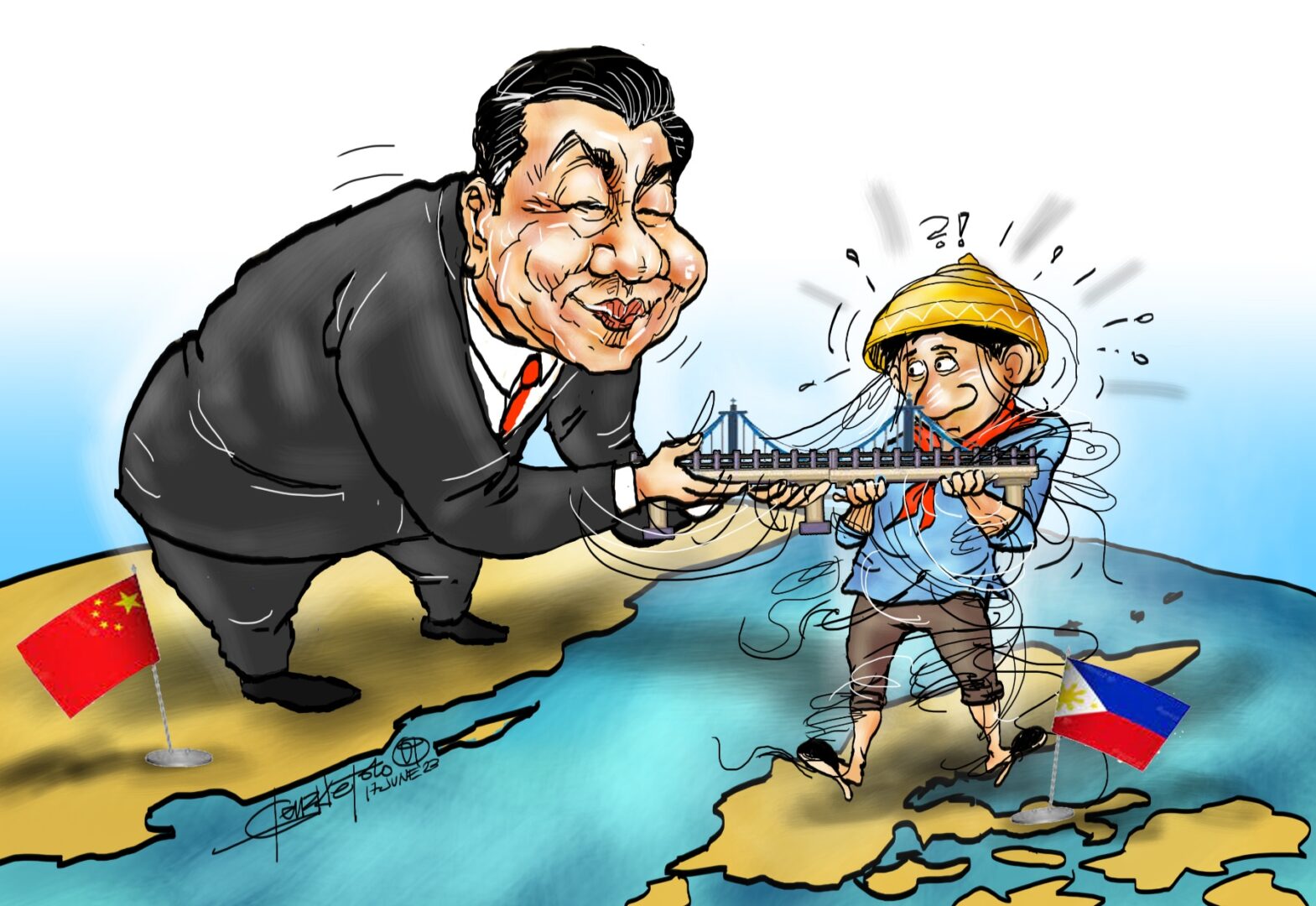For a time, in the not-so-distant past, China had taken positive steps towards being a global leader that would rival the clout of the United States.
That was when US President Donald Trump was giving all of the free trade agreements that his country was in the middle finger as he readjusted American economic policies to favor its flagging domestic industries.
The vacuum left by the Americans in the Trans-Pacific Partnership, which is now practically dead after Trump abandoned it, was taken over by China as it backed an Association of Southeast Asian Nations or ASEAN brainchild which is the Regional Comprehensive Economic Partnership or RCEP.
RCEP seamlessly connected with China’s Belt and Road Initiative which seeks to redevelop the mainland’s role as a catalyst of growth in the Asian continent.
From then on, however, China went downhill due to a long list of unfulfilled commitments despite the many strings attached to its committed projects.
When former president Rodrigo Duterte obtained economic pledges from his counterpart, Xi Jinping, Filipinos’ perception of China improved slightly although it remained far below their confidence in the Americans which, nonetheless, was expected because of the historic background of both nations.
China should have built on the small improvement since it showed that Filipinos were willing to give their neighbor the benefit of the doubt.
According to Defense Secretary Gibo Teodoro, China can further raise its profile in the region by adhering to international law.
“As a stronger country, it has a bigger obligation to be magnanimous and show trust and to earn the trust of the Filipino people by conforming its activities to recognize norms of international law,” Teodoro said.
China just cannot ignore the arbitral award of July 2016 which ruled in favor of the Philippines in the maritime dispute over the South China Sea.
The ruling was based on the provisions of the United Nations Convention on the Law of the Sea or UNCLOS.
Teodoro, echoing past pronouncements by the country’s leadership, said the arbitral award cannot be frittered or bargained away by the passage of administrations.
He was referring to the shifting foreign policies of administrations which is similar to the roll of the dice when it comes to relations with China.
As it is now, China’s relationship with the Philippines has been marked by a mix of cooperation and tension over the years, with issues such as territorial disputes in the West Philippine Sea and economic competition — particularly with the deluge of smuggled Chinese products into the country — all contributing to the low confidence level.
As the bigger economy, China should contribute greatly to the respect of each nation in the region instead of being the source of friction.
China promised to deepen economic cooperation with the Philippines in ways that are mutually beneficial and inclusive, which is something that it should pursue.
This could include investing in infrastructure projects that generate employment for Filipinos, sharing technology and expertise, and facilitating trade and investment that promote sustainable growth and development.
China could engage more actively with the Filipino people through cultural and educational exchanges, people-to-people diplomacy, and initiatives that promote greater understanding and appreciation between the two nations.
The best step that China could take is to act as a big brother in the region and address concerns about its actions, including its militarization of disputed islands in the West Philippine Sea and its treatment of Filipino fishermen in those waters.
For one, China should strive to meet its unfulfilled infrastructure support to improve Filipinos’ low confidence in it, which is a shame since both nations are geographical neighbors.
